National
Top 10 national news stories of 2022
From Club Q to monkeypox to midterm surprises, a year to remember
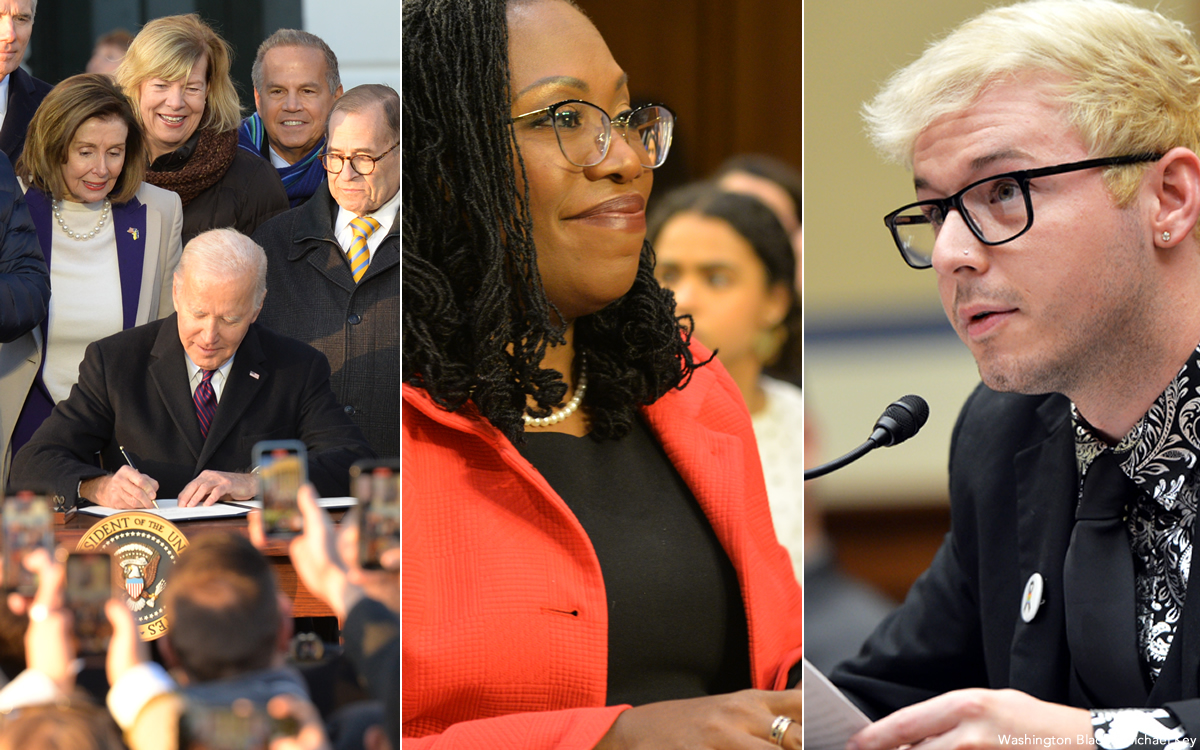
The year 2022 will be remembered for a slew of LGBTQ-related news. As if COVID wasn’t bad enough, the arrival of monkeypox in the spring led to a new panic and new round of vaccinations among gay and bi men. There was the overturning of Roe and fears of attacks on Obergefell. Then came the midterms and the Democrats ran surprisingly strong. And just when we thought the year was over, five LGBTQ people were shot to death at Club Q and Congress managed to pass the Respect for Marriage Act.
Below are the Blade’s staff picks for the top 10 stories of 2022.
#10 Karine Jean-Pierre makes history

Karine Jean-Pierre made history this year, becoming the first Black and the first LGBTQ White House press secretary, having previously served as deputy press secretary to Jen Psaki and chief of staff for then-vice-presidential candidate Kamala Harris.
When Jean-Pierre gave her first White House press briefing last year, on an Air Force One flight bound for Atlanta, she became the first LGBTQ person to do so. Jean-Pierre is also an immigrant born in Martinique, France, to Haitian parents.
#9 Turmoil and change at HRC
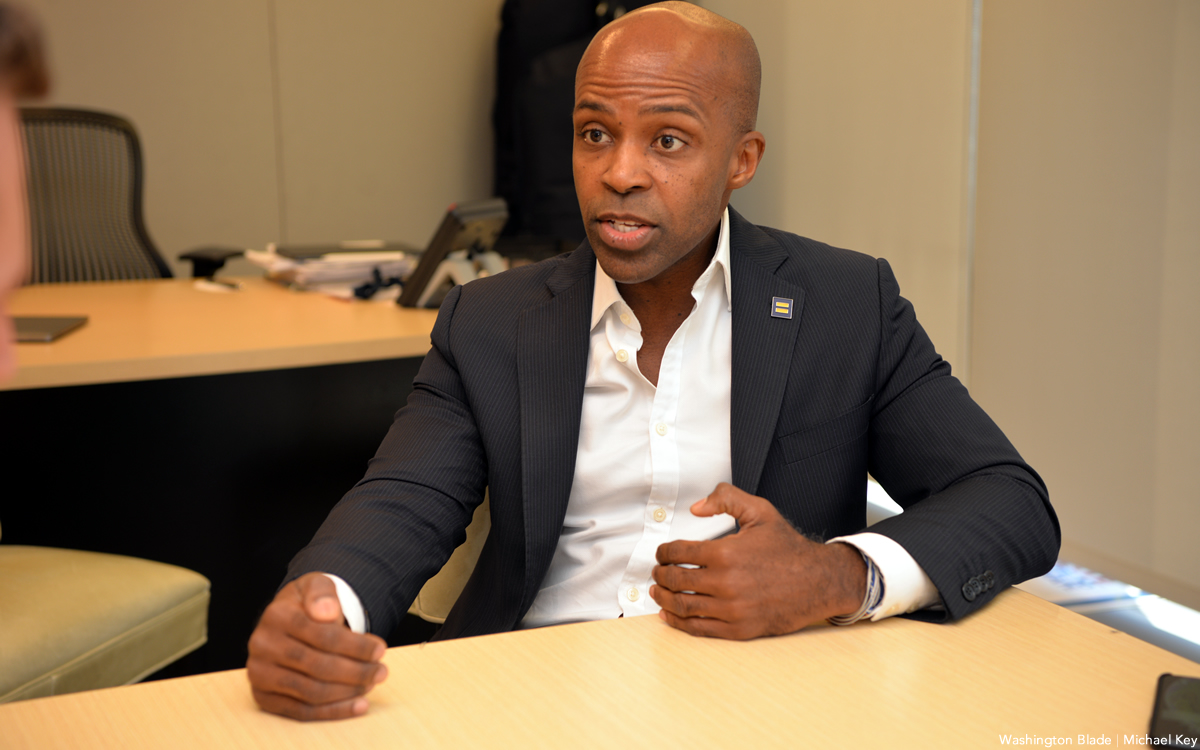
Alphonso David’s tenure as the first Black president of the Human Rights Campaign came to an end in 2021 following accusations that David, when serving as counsel to then-New York Gov. Andrew Cuomo, helped to cover up allegations that the politician had sexually harassed and assaulted multiple women. After stepping down from HRC, David filed a lawsuit against the organization alleging discrimination.
On Nov. 28, 2022, Kelley Robinson took over as HRC president, becoming the first Black queer woman to lead the nation’s largest LGBTQ advocacy organization. A veteran community organizer who previously served as executive director of Planned Parenthood Action Fund, Robinson told the Blade she is committed to leading HRC with a focus on intersectionality.
#8 U.S. declares monkeypox public health emergency

In August, the Centers for Disease Control and Prevention declared the monkeypox virus (MPV) outbreak a public health emergency in the United States. Cases by then had been reported in all 50 states, the District of Columbia, and Puerto Rico – almost all by gay and bisexual men who have sex with men.
Initially, the Biden-Harris administration’s vaccination campaign, which involved transporting doses from the Strategic National Stockpile to clinics across the country, was widely criticized as too slow, with problems that carried over from the government’s shaky rollout of tests and vaccines for COVID-19.
By midsummer, however, more shots were being administered in more arms thanks to a coordinated effort by the White House Pandemic Office. The number of MPV cases declined from a peak of 440 per day in August to 60 in October.
#7 Ketanji Brown Jackson joins Supreme Court
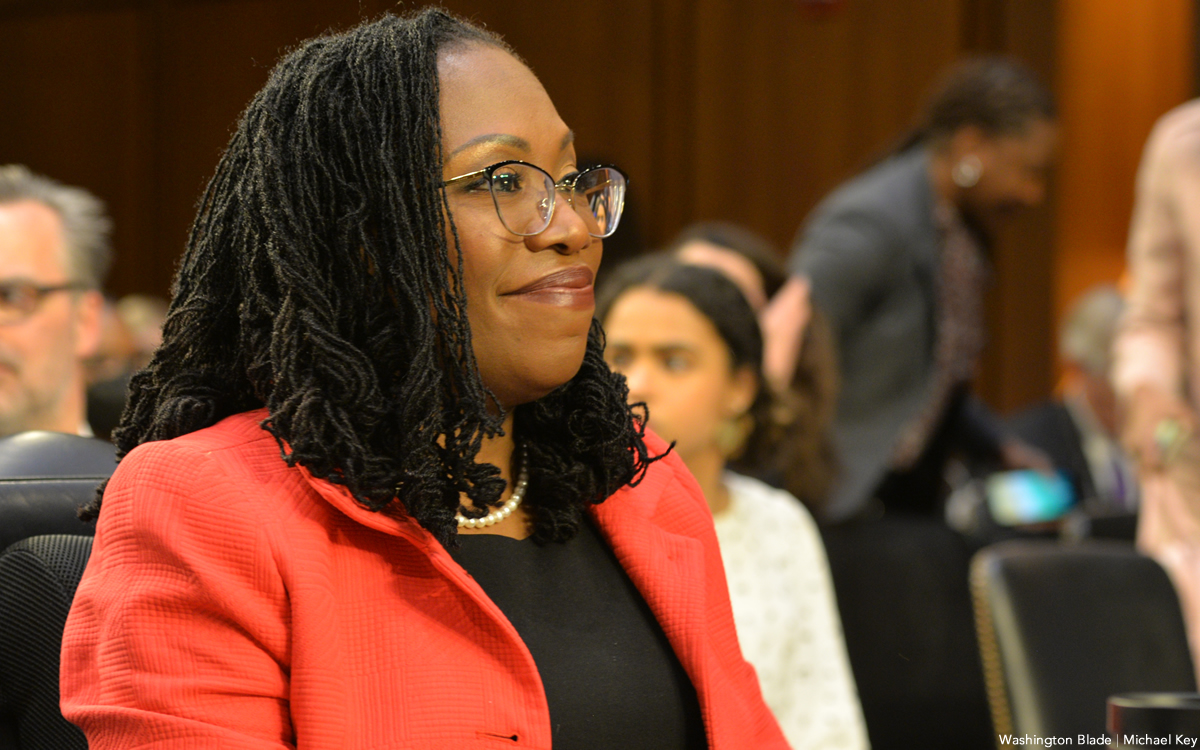
Ketanji Brown Jackson began her tenure as the first Black woman to serve as a justice on the U.S. Supreme Court, having previously presided over the U.S. Court of Appeals for the District of Columbia Circuit.
Before Jackson was seated this summer, the Supreme Court’s conservative supermajority overturned the constitutional right to abortion with its ruling in Dobbs v. Jackson Women’s Health Organization.
This term, the Supreme Court will decide 303 Creative v. Elenis, a case that was brought by a web designer who wanted to reject same-sex couples’ requests for wedding websites and whose outcome could carry broad implications for the enforcement of nondiscrimination laws against providers of public accommodations.
#6 Schools become nexus of battles over LGBTQ rights
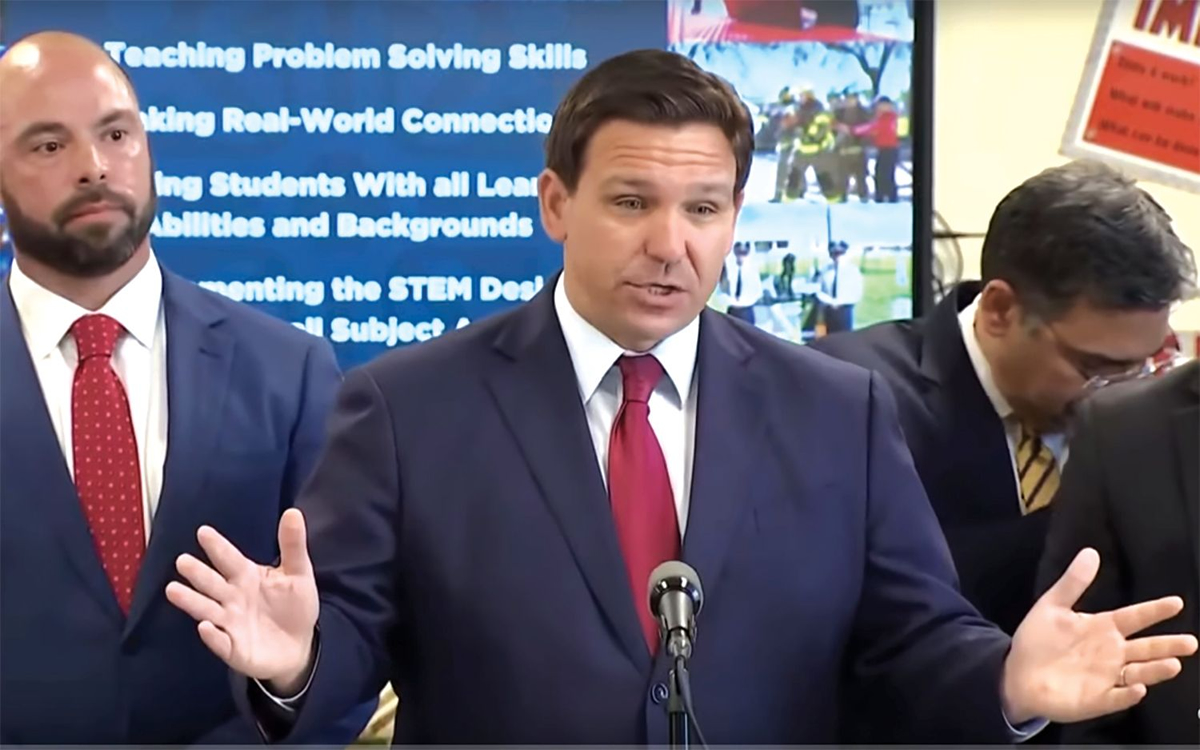
As conservative state legislators ramped up attacks on the LGBTQ community with bills targeting youth sports and policies in public schools, right-wing advocates and hate groups increasingly protested all-ages LGBTQ events like family-friendly drag performances and drag queen story hours – often carrying firearms and occasionally causing enough disruption that organizers and patrons were forced to disperse.
From Virginia to Minnesota to Florida, schools were embroiled this year over battles like whether educational materials containing LGBTQ themes should be made available to students and whether LGBTQ students should be outed to their parents.
Critics of Florida’s “Don’t Say Gay” law said it was written with discriminatory intent, warning teachers could be penalized for something as innocuous as displaying a photo of their same-sex spouse.
#5 Record number of anti-trans bills filed across country

More anti-trans bills were proposed this year in state legislatures throughout the country than during any other time in the nation’s history. Most targeted trans youth.
Some laws prohibit trans student athletes from playing and competing, while others restrict access to bathrooms and locker rooms that align with their gender identities and others target guideline directed medical treatments.
Texas Governor Greg Abbott, for example, directed child welfare authorities to investigate suspected cases where parents made gender affirming healthcare available to their trans and nonbinary children.
#4 Pelosi steps down from leadership after husband attacked
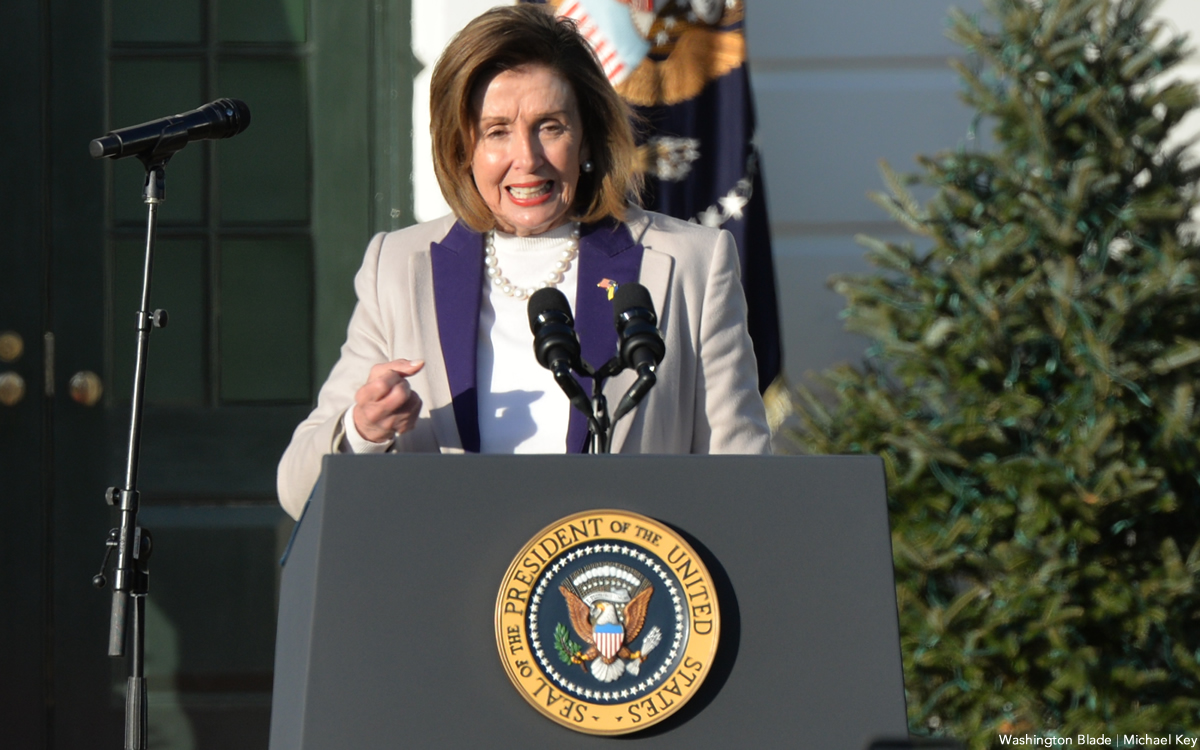
House Speaker Nancy Pelosi (D-Calif.) announced her plans to step down from House Democratic leadership after two decades, following the attack on her husband Paul Pelosi by an intruder who broke into the couple’s San Francisco home.
The first woman ever elected to become Speaker, Pelosi has been called the most effective lawmaker to ever serve in that role. Under the administrations of four presidents over two decades, she boasted signature legislative accomplishments like the passage of the Affordable Care Act and repeal of “Don’t Ask, Don’t Tell.” Rep. Hakeem Jeffries (D-N.Y.) was elected to succeed her.
#3 Midterms deliver Trump rebuke, victories for LGBTQ candidates
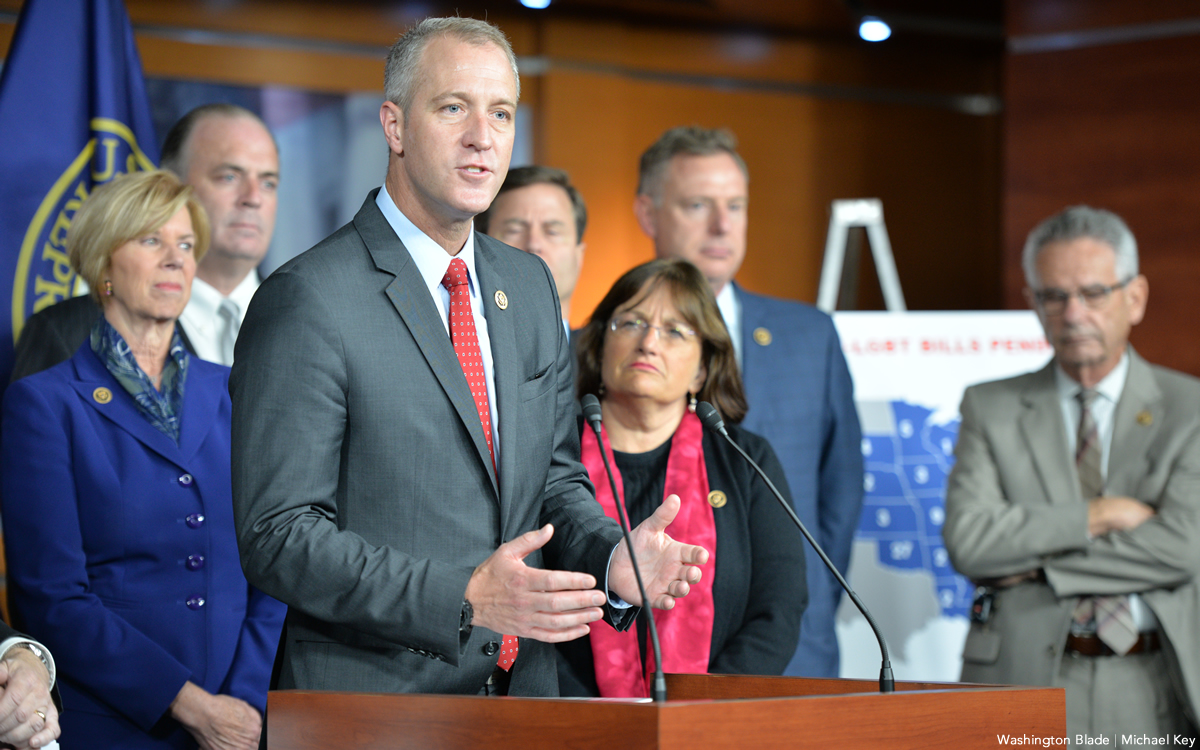
Political observers were surprised by Democrats’ expanded Senate majority and Republicans’ narrow capture of the House following the 2022 midterm elections, which were expected to hand the GOP decisive control of both chambers of Congress.
Not all Democratic candidates were so fortunate, however. Gay New York Rep. Sean Patrick Maloney (N.Y.), for instance, failed to win reelection despite his position as chair of the Democratic Congressional Campaign Committee, the party’s sixth highest-ranking position in the House.
Meanwhile, the LGBTQ Victory Fund reports that a record-breaking number of LGBTQ candidates ran for and were elected to public office – more than 340 and 1,065, respectively.
#2 Club Q shooting and fallout
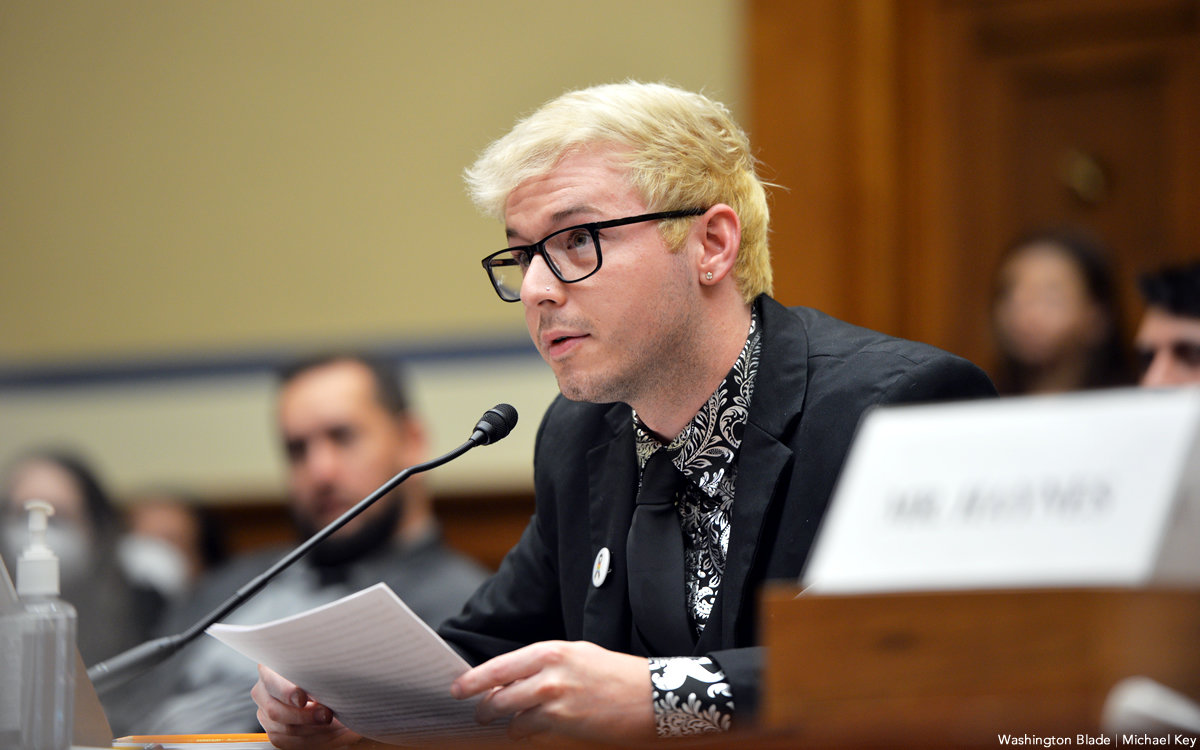
On Nov. 19, the eve of the Transgender Day of Remembrance, a gunman opened fire in Club Q, a Colorado Springs LGBTQ nightclub, killing five people and wounding 17 others in the deadliest attack on LGBTQ people since the Pulse nightclub shooting in Orlando in 2016.
The suspect, who was tackled and disarmed by patrons, including a trans woman, was charged with 305 criminal counts including hate crimes and murder.
The tragedy ignited a conversation about the link between hateful anti-LGBTQ rhetoric and actual violence directed at the community.
#1 Respect for Marriage Act becomes law
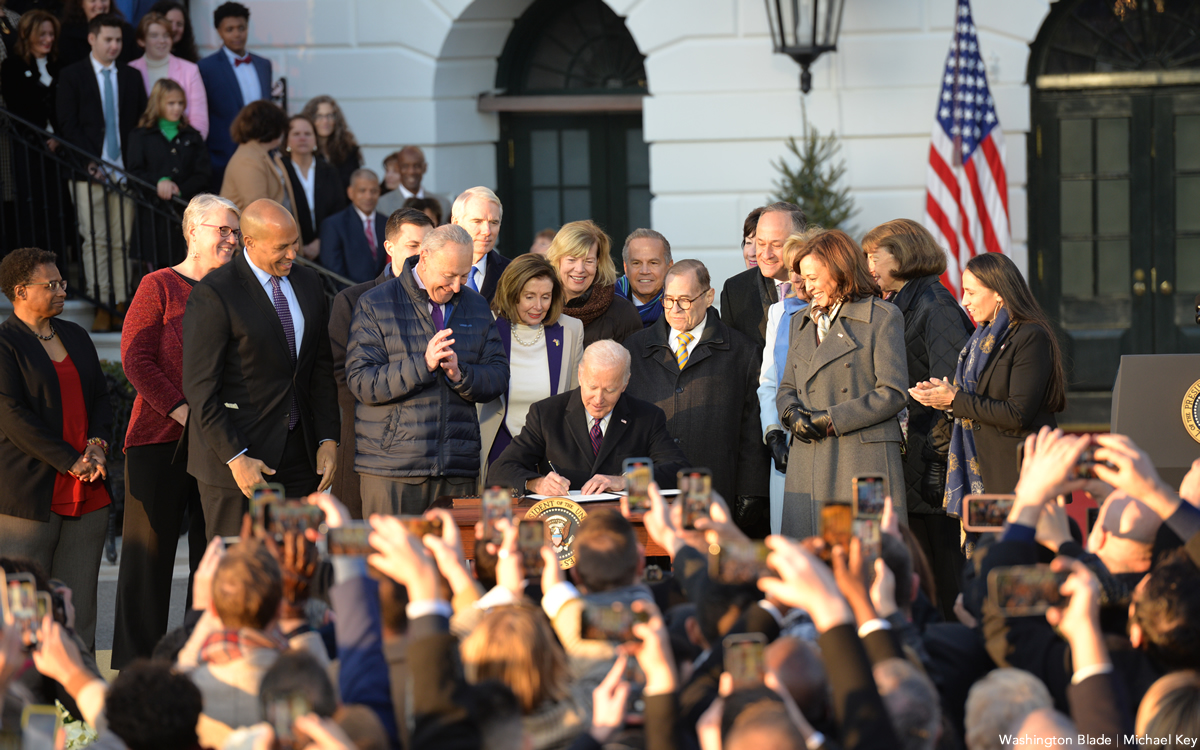
The Respect for Marriage Act, widely considered the greatest legislative victory for LGBTQ rights since the repeal of “Don’t Ask, Don’t Tell” in 2011, was passed by Congress with little time to spare before the end of the legislative session and promptly signed into law by President Joe Biden on Dec. 13.
Should the U.S. Supreme Court overturn or substantially weaken the constitutional right to same-sex marriage, the Respect for Marriage Act will gird against some of the greatest harms that would result for same-sex couples in the United States. Supreme Court Justice Clarence Thomas signaled his plan to revisit the high court’s caselaw governing marriage – along with other fundamental rights – in his concurring opinion in Dobbs v. Jackson Women’s Health Organization, a case whose ruling this summer overturned federal protections for abortion that had been in place since Roe v. Wade was decided in 1973.
Pennsylvania
Malcolm Kenyatta could become the first LGBTQ statewide elected official in Pa.
State lawmaker a prominent Biden-Harris 2024 reelection campaign surrogate

Following his win in the Democratic primary contest on Wednesday, Pennsylvania state Rep. Malcolm Kenyatta, who is running for auditor general, is positioned to potentially become the first openly LGBTQ elected official serving the commonwealth.
In a statement celebrating his victory, LGBTQ+ Victory Fund President Annise Parker said, “Pennsylvanians trust Malcolm Kenyatta to be their watchdog as auditor general because that’s exactly what he’s been as a legislator.”
“LGBTQ+ Victory Fund is all in for Malcolm, because we know he has the experience to win this race and carry on his fight for students, seniors and workers as Pennsylvania’s auditor general,” she said.
Parker added, “LGBTQ+ Americans are severely underrepresented in public office and the numbers are even worse for Black LGBTQ+ representation. I look forward to doing everything I can to mobilize LGBTQ+ Pennsylvanians and our allies to get out and vote for Malcolm this November so we can make history.”
In April 2023, Kenyatta was appointed by the White House to serve as director of the Presidential Advisory Commission on Advancing Educational Equity, Excellence and Economic Opportunity for Black Americans.
He has been an active surrogate in the Biden-Harris 2024 reelection campaign.
The White House
White House debuts action plan targeting pollutants in drinking water
Same-sex couples face higher risk from environmental hazards

Headlining an Earth Day event in Northern Virginia’s Prince William Forest on Monday, President Joe Biden announced the disbursement of $7 billion in new grants for solar projects and warned of his Republican opponent’s plans to roll back the progress his administration has made toward addressing the harms of climate change.
The administration has led more than 500 programs geared toward communities most impacted by health and safety hazards like pollution and extreme weather events.
In a statement to the Washington Blade on Wednesday, Brenda Mallory, chair of the White House Council on Environmental Quality, said, “President Biden is leading the most ambitious climate, conservation, and environmental justice agenda in history — and that means working toward a future where all people can breathe clean air, drink clean water, and live in a healthy community.”
“This Earth Week, the Biden-Harris Administration announced $7 billion in solar energy projects for over 900,000 households in disadvantaged communities while creating hundreds of thousands of clean energy jobs, which are being made more accessible by the American Climate Corps,” she said. “President Biden is delivering on his promise to help protect all communities from the impacts of climate change — including the LGBTQI+ community — and that we leave no community behind as we build an equitable and inclusive clean energy economy for all.”
Recent milestones in the administration’s climate policies include the U.S. Environmental Protection Agency’s issuance on April 10 of legally enforceable standard for detecting and treating drinking water contaminated with polyfluoroalkyl substances.
“This rule sets health safeguards and will require public water systems to monitor and reduce the levels of PFAS in our nation’s drinking water, and notify the public of any exceedances of those levels,” according to a White House fact sheet. “The rule sets drinking water limits for five individual PFAS, including the most frequently found PFOA and PFOS.”
The move is expected to protect 100 million Americans from exposure to the “forever chemicals,” which have been linked to severe health problems including cancers, liver and heart damage, and developmental impacts in children.
An interactive dashboard from the United States Geological Survey shows the concentrations of polyfluoroalkyl substances in tapwater are highest in urban areas with dense populations, including cities like New York and Los Angeles.
During Biden’s tenure, the federal government has launched more than 500 programs that are geared toward investing in the communities most impacted by climate change, whether the harms may arise from chemical pollutants, extreme weather events, or other causes.
New research by the Williams Institute at the UCLA School of Law found that because LGBTQ Americans are likelier to live in coastal areas and densely populated cities, households with same-sex couples are likelier to experience the adverse effects of climate change.
The report notes that previous research, including a study that used “national Census data on same-sex households by census tract combined with data on hazardous air pollutants (HAPs) from the National Air Toxics Assessment” to model “the relationship between same-sex households and risk of cancer and respiratory illness” found “that higher prevalence of same-sex households is associated with higher risks for these diseases.”
“Climate change action plans at federal, state, and local levels, including disaster preparedness, response, and recovery plans, must be inclusive and address the specific needs and vulnerabilities facing LGBT people,” the Williams Institute wrote.
With respect to polyfluoroalkyl substances, the EPA’s adoption of new standards follows other federal actions undertaken during the Biden-Harris administration to protect firefighters and healthcare workers, test for and clean up pollution, and phase out or reduce use of the chemicals in fire suppressants, food packaging, and federal procurement.
Maine
Maine governor signs transgender, abortion sanctuary bill into law
Bomb threats made against lawmakers before measure’s passage

BY ERIN REED | On Tuesday, Maine Gov. Janet Mills signed LD 227, a sanctuary bill that protects transgender and abortion providers and patients from out-of-state prosecution, into law.
With this action, Maine becomes the 16th state to explicitly protect trans and abortion care in state law from prosecution. This follows several bomb threats targeting state legislators after social media attacks from far-right anti-trans influencers such as Riley Gaines and Chaya Raichik of Libs of TikTok.
An earlier version of the bill failed in committee after similar attacks in January. Undeterred, Democrats reconvened and added additional protections to the bill before it was passed into law.
The law is extensive. It asserts that gender-affirming care and reproductive health care are “legal rights” in Maine. It states that criminal and civil actions against providers and patients are not enforceable if the provision or access to that care occurred within Maine’s borders, asserting jurisdiction over those matters.
It bars cooperation with out-of-state subpoenas and arrest warrants for gender-affirming care and abortion that happen within the state. It even protects doctors who provide gender-affirming care and abortion from certain adverse actions by medical boards, malpractice insurance, and other regulating entities, shielding those providers from attempts to economically harm them through out-of-state legislation designed to dissuade them from providing care.
You can see the findings section of the bill here:
The bill also explicitly enshrines the World Professional Association of Transgender Health’s Standards of Care, which have been the target of right-wing disinformation campaigns, into state law for the coverage of trans healthcare:
The bill is said to be necessary due to attempts to prosecute doctors and seek information from patients across state lines. In recent months, attorneys general in other states have attempted to obtain health care data on trans patients who traveled to obtain care. According to the U.S. Senate Finance Committee, attorneys general in Tennessee, Indiana, Missouri, and Texas attempted to obtain detailed medical records “to terrorize transgender teens in their states … opening the door to criminalizing women’s private reproductive health care choices.”
The most blatant of these attempts was from the attorney general of Texas, who, according to the Senate Finance Committee, “sent demands to at least two non-Texas entities.” One of these entities was Seattle Children’s Hospital, which received a letter threatening administrators with arrest unless they sent data on Texas patients traveling to Seattle to obtain gender-affirming care.
Seattle Children’s Hospital settled that case out of court this week, agreeing to withdraw its Texas business registration in return for Texas dropping its investigation. This likely will have no impact on Seattle Children’s Hospital, which has stated it did not treat any youth via telemedicine or in person in Texas; the hospital will be able to continue treating Texas youth who travel outside of Texas to obtain their care. That settlement was likely compelling due to a nearly identical law in Washington that barred out-of-state investigations on trans care obtained solely in the state of Washington.
The bill has faced a rocky road to passage. A similar bill was debated in January, but after coming under intense attack from anti-trans activists who misleadingly called it a “transgender trafficking bill,” the bill was voluntarily withdrawn by its sponsor.
When LD 227 was introduced, it faced even more attacks from Gaines and Libs of TikTok. These attacks were followed by bomb threats that forced the evacuation of the legislature, promising “death to pedophiles” and stating that a bomb would detonate within a few hours in the capitol building.
Despite these threats, legislators strengthened both the abortion and gender-affirming care provisions and pressed forward, passing the bill into law. Provisions found in the new bill include protecting people who “aid and assist” gender-affirming care and abortion, protections against court orders from other states for care obtained in Maine, and even protections against adverse actions by health insurance and malpractice insurance providers, which have been recent targets of out-of-state legislation aimed at financially discouraging doctors from providing gender-affirming care and abortion care even in states where it is legal.
See a few of the extensive health insurance and malpractice provisions here:
Speaking about the bill, Gia Drew, executive director of Equality Maine, said in a statement, “We are thrilled to see LD 227, the shield bill, be signed into law by Gov. Mills. Thanks to our pro equality and pro reproductive choice elected officials who refused to back down in the face of disinformation. This bill couldn’t come into effect at a better time, as more than 40 percent of states across the country have either banned or attempted to block access to reproductive care, which includes abortions, as well as transgender healthcare for minors. Thanks to our coalition partners who worked tirelessly to phone bank, lobby, and get this bill over the finish line to protect community health.”
Destie Hohman Sprague of the Maine Women’s Lobby celebrated the passage of the bill despite threats of violence, saying in a statement, “A gender-just Maine ensures that all Mainers have access to quality health care that supports their mental and physical wellbeing and bodily autonomy, including comprehensive reproductive and gender-affirming care. We celebrate the passage of LD 227, which helps us meet that goal. Still, the patterns of violence and disinformation ahead of the vote reflected the growing connections between misogyny, extremism, and anti-democratic threats and actions. We must continue to advocate for policies that protect bodily autonomy, and push back against extremist rhetoric that threatens our states’ rights and our citizens’ freedoms.”
The decision to pass the legislation comes as the Biden administration released updated HIPAA protections that protect “reproductive health care” from out-of-state prosecutions and investigations.
Although the definition of “reproductive health care” is broad in the new HIPAA regulations, it is uncertain whether they will include gender-affirming care. For at least 16 states, though, gender-affirming care is now explicitly protected by state law and shielded from out-of-state legislation, providing trans people and those seeking abortions with protections as the fight increasingly crosses state lines.
****************************************************************************

Erin Reed is a transgender woman (she/her pronouns) and researcher who tracks anti-LGBTQ+ legislation around the world and helps people become better advocates for their queer family, friends, colleagues, and community. Reed also is a social media consultant and public speaker.
******************************************************************************************
The preceding article was first published at Erin In The Morning and is republished with permission.
-

 State Department3 days ago
State Department3 days agoState Department releases annual human rights report
-

 Maryland4 days ago
Maryland4 days agoJoe Vogel campaign holds ‘Big Gay Canvass Kickoff’
-

 Politics3 days ago
Politics3 days agoSmithsonian staff concerned about future of LGBTQ programming amid GOP scrutiny
-

 District of Columbia18 hours ago
District of Columbia18 hours agoCatching up with the asexuals and aromantics of D.C.












